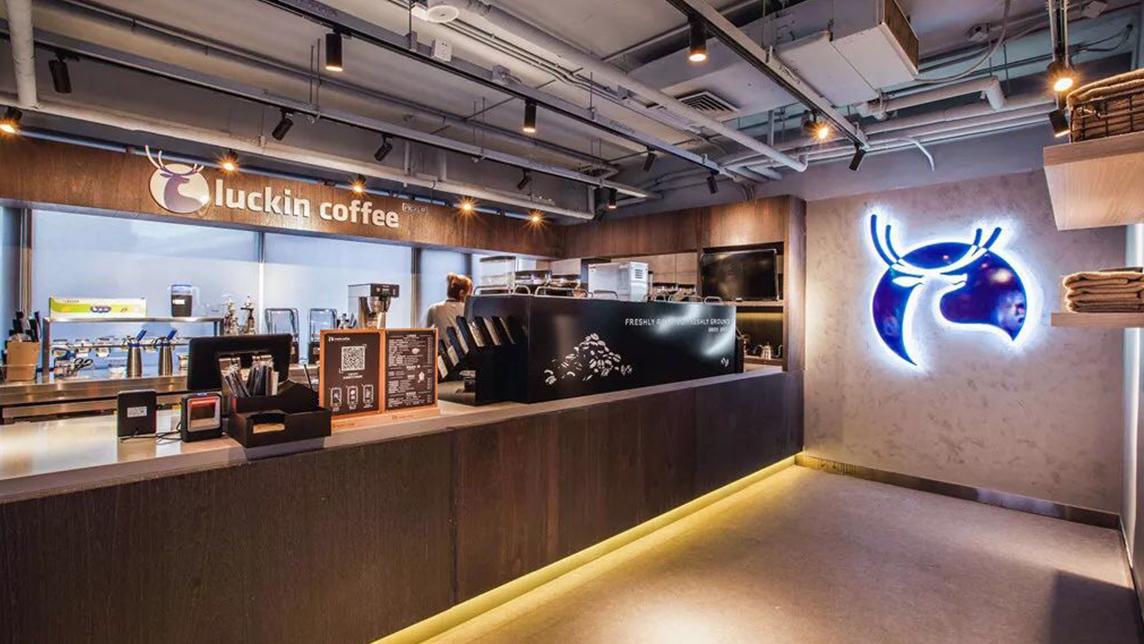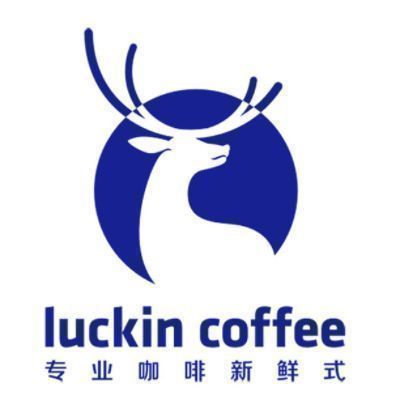In July 2018, Chinese startup Luckin Coffee closed a Series A funding round worth US$200 million, which made the nine-month-old brand China’s first coffee shop unicorn.
Founded in October 2017, Luckin Coffee has aggressively elbowed its way into China's café market.
During its soft opening, Luckin launched more than 500 stores in 13 first- and second-tier cities. By comparison, it took Seattle-based café chain Starbucks more than a decade to open 500 stores on the Chinese mainland.
Luckin sees Starbucks as its biggest competitor. And for good reason: Starbucks has cornered a 51% share of the Chinese café market. UBC Coffee (12.8%) and McCafé (6.2%) are a distant second and third place.
"It's absurd that there are so few options in such a vast market. Starbucks should not be the sole player," said Qian Zhiya, Luckin’s founder and CEO. "In many countries and regions, local coffee chains have a larger market share than foreign ones do."
Chinese millennials’ growing thirst for coffee
With a rich and glamorous tea culture, China has been a nation of tea drinkers for more than 4,000 years. Coffee was only introduced on the Chinese mainland in the 19th century. For a long time, a cup of freshly ground coffee has been almost exclusively the indulgence of a wealthy minority in China due to high cost and limited availability.
However, the market is changing. Currently, the annual growth rate (AGR) of coffee consumption in China is about 20%, almost ten times the global average. In some first-tier cities, the AGR is 30%.
This trend is driven mainly by Chinese millennials, the most highly-educated and well-traveled generation in the country. For young people, a cup of coffee brings not only a boost in energy, but also a sip of the novel western lifestyle.
According to a report by Kamen Club, an analytics and media platform for the beverage industry, and O2O service platform Meituan-Dianping, people aged 20-35 consumed 75.3% of all coffee sold in China in 2016.
And these millennial coffee drinkers are looking for better quality beans to satisfy their taste buds. A Euromonitor report shows that, from 2016 to 2017, sales of fresh coffee grew by 24.9% in China, whereas sales of instant coffee only grew by 1.1%.
China’s rapidly expanding demand for coffee means more players have entered the market. To survive the competition, coffee houses have to accommodate the more sophisticated tastes of consumers, especially that of urban youth.
That’s where Luckin Coffee comes in. Targeting young price-sensitive white-collar workers, the brand appeals to millennials because the coffee is good and the price is right. Made from high-quality Arabica beans and blended by well-trained baristas, a cup of Luckin coffee usually costs RMB 20–30, about 20% less than a cup of Starbucks. Ongoing promotions mean the current average cost of a Luckin coffee is RMB 10–20.
The startup’s efforts to bring in young buyers have paid off quickly. According to a report by Goldman Sachs, 90% of Luckin Coffee’s customers are younger than 34 years old. For Starbucks, the proportion is about 70%.
Qian Zhiya’s "any moment" strategy
In addition to offering more affordable prices, Luckin Coffee relies on the "new retail" model, Alibaba founder Jack Ma's business model that tries to merge online and offline retail in a continuous manner, to improve the customer experience.
Coffee delivery is the biggest selling point of Luckin. The startup’s app allows customers to order coffee online and have their drinks delivered within 30 minutes.
But Qian believes a brand that simply delivers coffee lacks "vitality." Although employing a delivery-only model could save Luckin a lot on rent and decor costs, the company would still need to pay for packing supplies and the cost of regularly hiring more couriers. In addition, guaranteeing speed of delivery and coffee freshness is a challenge.
According to Qian, a real new retail café chain should achieve the perfect balance of quality, price and convenience by combining self-pickup with delivery and integrating online channels with offline ones.
To realize her vision, Qian has proposed an "any moment" brand strategy, which requires four types of outlets. The "self-pickup" and "take-out kitchen" shops handle most of Luckin’s pickup and delivery orders. When customers want to sit down and chat over cappuccinos, they can opt for an "elite" or "relax" outlet.
Qian noted that traditional cafés serve as a "third space," i.e., tertiary social surroundings distinct from the predominant social environments of the home and the workplace. The "any moment" strategy goes beyond the concept of the "third space" to cater to customers’ needs whether they are at work, at home or socializing with friends.
"In the past, people had to look for coffee [in coffee shops]. Now coffee can be sent to wherever they are," Qian said. "We satisfy customers’ needs in the form that is most convenient for them."
Effective marketing
The brand has been building its offline presence with advertisements featuring its eye-catching blue-and-white cup in elevators, the subway and bus shelters. Popular film stars Tang Wei and Chang Chen, well-liked by white-collar workers, have both signed on to endorse the startup.
Luckin has invested heavily in digital marketing as well. Whenever a new store opens, the company places location-based advertisements on popular social media platforms such as WeChat to alert potential customers nearby.
Luckin Coffee reels customers in by offering new users a free cup of coffee for downloading the app. Then the company sucks them in further by offering another free cup of coffee for successfully referring a friend. This strategy, called fission marketing, spawns viral marketing campaigns, which bring in scores of customers.
"After approximately two months, the new outlet will become the most popular café in the area," explained Yang Fei, Luckin’s CMO, in an interview.
During its soft launch period, Luckin Coffee’s app garnered more than 1.3 million members, or about 7,200 new members per day. It even ranked first among the most downloaded food and beverage apps in the Chinese Apple App Store on April 18, 2018.
On September 9, Luckin Coffee announced a partnership with internet giant Tencent, the owner of WeChat. The new deal will enable the startup to take better advantage of WeChat’s marketing tools. With Tencent’s help, Luckin will also be able to serve its customers using facial-recognition payments, robot delivery and other innovative technologies.
Meanwhile, Luckin’s biggest rival has been taking swift action to defend its territory. In August 2018, Starbucks partnered with Alibaba-owned food-delivery platform Ele.me to launch its own delivery service in China.
On September 19, Starbucks started beta testing its delivery service at 10 stores in Beijing and Shanghai. Customers within 3 kilometers can have their drinks delivered by ordering via the Starbucks app or Ele.me. Additionally, Starbucks will be launching a virtual shop on Alibaba’s e-commerce platforms.
Qian has said Luckin Coffee will slow down the pace of expansion and open new outlets based on consumer demand and operational capacity. The promotions and subsidies will continue.
After an espresso-boosted start, Luckin now needs to store energy in preparation for the long battle ahead.












